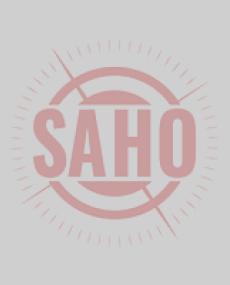
Activist with the ANC and SACTU
Shabangu was an active organiser at the street level for the African National Congress (ANC) and the South African Congress of Trade Unions (SACTU) in Dube, Soweto. He assisted in setting up and coordinating Congress of the People (COP) committees for house-to-house visits during the early 1950s. In the late 1960s Shabangu became a member of SACTU’s Witwatersrand local committee.
Following the arrest of Winnie Madikizela-Mandela in May 1969, Shabangu, along with Samson Ndou, Rita and Lawrence Ndzanga and other members of the underground network initiated by Winnie were also arrested and placed in detention. After 5 months in detention they were set to appear in court. The Ndzangas and Shabangu testified during the hearing that the police had attempted to coerce them into accepting Mendil Levine as their lawyer. The judge ruled that the detainees be allowed to consult with Joel Carlson, a human rights lawyer who had been arranged by Nelson Mandela and the family of the detainees.
After Levine had been fired, Carlson included George Bizos and Arthur Chaskalson in the defence team. The trial began on 1 December 1969 and the detainees were charged under the Suppression of Communism Act for acting to re-establish the banned ANC. On 16 February 1970 the Transvaal Attorney-General decided to drop the charges, however, as soon as the announcement was made and the court was cleared, the accused were rearrested under Section 6 of the Terrorism Act. After 9 months in solitary confinement the accused were back in court. However, three days after the second trial began the judge acquitted all detainees because the charges in their indictment were exactly the same as in the first trial.
After his release, Shabangu, like many of his fellow accused, continued with the underground work. During the early 1970s Shabangu became involved in teaching members of the youth movement in the Transvaal on the history of the South African Communist Party (SACP) and the ANC. He also provided various leaders with information on the ANC in exile. He was also part of various cultural and literacy groups which aimed to recruit young South Africans into the ANC underground network. As a result of his involvement in the youth anti-apartheid movement, Shabangu was made the keynote speaker of the South African Student Movement’s (SASM) and General Student Councils (GSCs) in 1975.
Shabangu became involved preparations leading up to the formation of the United Democratic Front (UDF) in the Transvaal. When the UDF was formally established in 1983 Shabangu was elected as the Vice-President of the UDF Transvaal. When the Black and Allied Workers Union (BAWU) split Shabangu became involved in the offshoot, the Construction and Allied Workers Union (CAWU), of which he later became a member of the executive committee. In February 1984 Shabangu was arrested along with Amos Masondo and placed in detention.